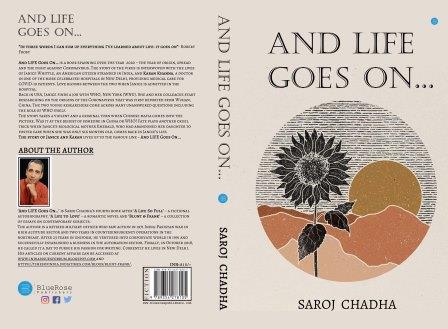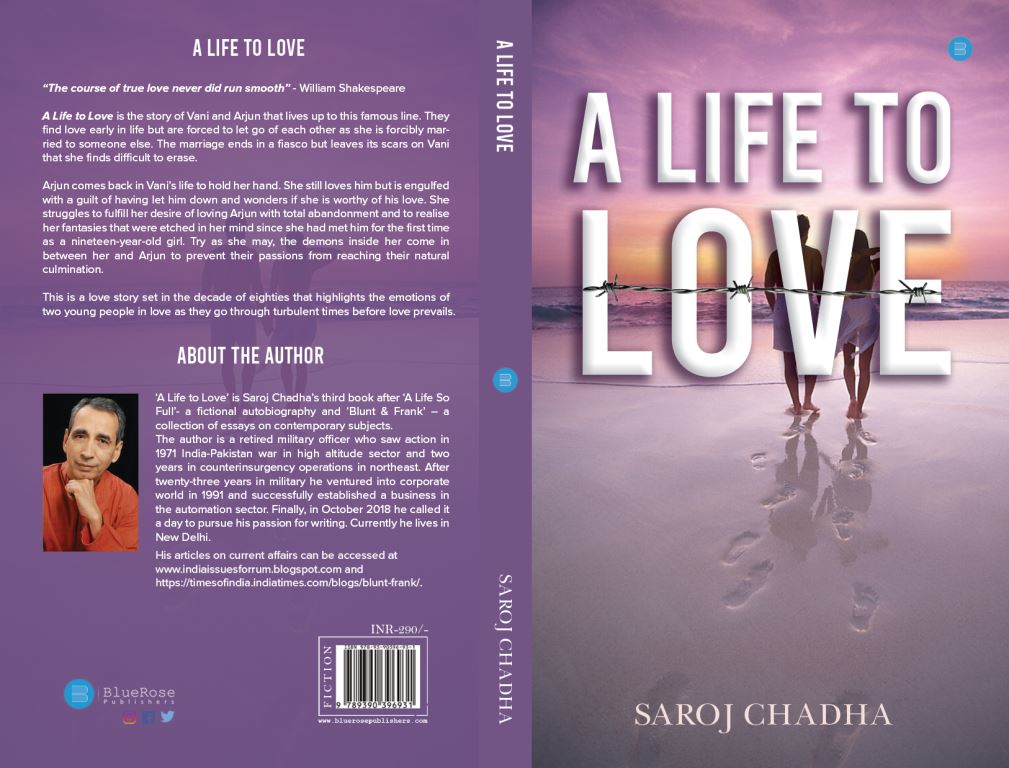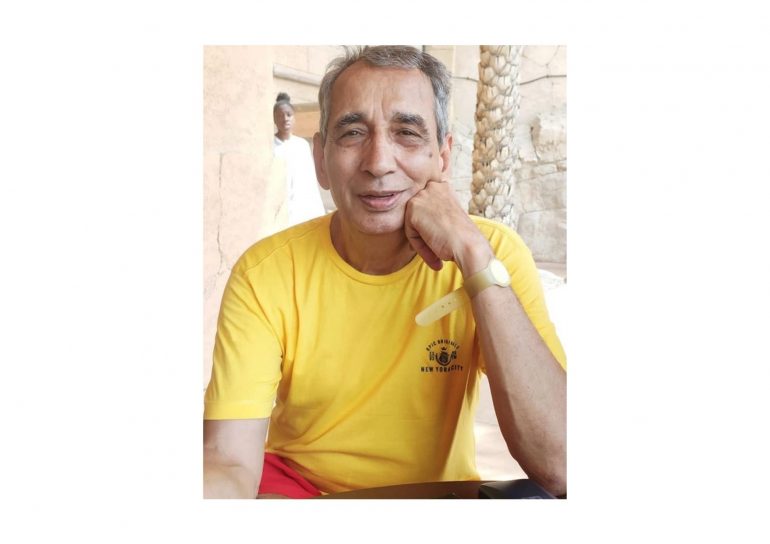Q1. Since when did you want to be a writer?
In my teens, I was an avid reader of Western Cowboy novels authored by Zane Grey, Max Brand, and Luke Short, among others. For a young man, living in the West seemed exciting and thrilling. I hoped that one day I too would write a cowboy story, but then joining army training at the young age of sixteen in 1964 put to rest all such aspirations.
The real opportunity to write came much later after fifty years once I started writing articles on current affairs and issues facing the nation on my blog. In 2019, I decided to become a full-time writer to fulfill my dream. In the last eighteen months, I have published a trilogy of books on Life and the fourth one, Blunt & Frank, is a compilation of some of my articles.
Q2. Can you elaborate on why you decided to write a trilogy on life?
The first time I thought about the value of the gift of life was at the age of twenty-four as a young army officer who found himself in the midst of the 1971 Indo-Pak war. During the war, it was impossible to reflect on such serious issues. However, the thought remained at the back of my mind.
After the war, I did some serious reflection on life. I tried to understand what it meant to me and what I wanted from it. The solitude and serenity of the Those valley in Ladakh was perhaps an ideal place for such reflection. The experiences of war also played their part. The young mind was more mature and exuded confidence. The fear of death had gone out of the window for good.
A few days later, I knew what I wanted out of my life. It could be summarized in three short sentences as below:
- A life full of challenges and learnings that made me a better human being continual.
- A life where I could love and be loved in turn.
- A life that did not come to a halt in the face of adversities or losses.
Was this my moment of Enlightenment? I would be tempted to say ‘Yes’ it was. A Life So Full, A Life to Love, And Life Goes On… is a trilogy of books dedicated to these three tenets of understanding the gift of life.
Q3. Do you believe in writer’s block or have you ever gone through writer’s block and if yes, how did you deal with it?
Fortunately, I have not suffered writer’s block so far. Before I started writing my first book, I had already written nearly three hundred articles on various subjects. So, the fluency was there, as was the ability to think precisely about what I wished to convey.

Q4. Do you read your book reviews and how does it affect you?
Yes, I do read my book reviews. In the final analysis, one writes for the readers. It would be naïve to assume that everything one writes must be accepted and appreciated by others. A reader’s review is important feedback, whichever way it may be.
Q5. What would you have been if not a writer?
Just for the record, I belong to a family that has served the Indian Army for four successive generations. So, a career in uniform was a foregone conclusion for me back in 1964. Later, as the Indian economy opened up, the call of the corporate sector and international business beckoned. I was fortunate to be a part of the same from 1991 to 2018.
Q6. Tell us something about your three books?
A Life So Full is a fictional autobiography that reads like a thriller with anecdotes from army life, the 1971 war, the corporate world, and family life.
A Life to Love evolved from my belief that the concept of true love is eternal. It was deliberately set in the decades of the eighties and nineties, as I see that period as an overlap between our generation and the present generation when the transition started.
And Life Goes On… is a story set in the year 2020, the year of the spread and fight against Coronavirus, to drive home the point that life goes on despite difficult times.

Q7. How has the idea of love and relationships evolved over time?
In the generation prior to us, whether or not one was in love, a relationship had to be honored and nurtured for life. In our generation, the same thought process continued, perhaps with a little less rigidity, as divorce, separation, and breakup started entering relationships. For the present generation, divorce, separation, and breakup are not taboo anymore. In today’s fast-paced life, no one wants to carry the baggage of a failed or unsavory relationship.
However, I strongly feel that the concept of true love remains more or less intact. Even today, you can find many who believe in the old adage of ‘you love only once’.
Q8. What are your thoughts on the role of society in an individual’s relationship?
It may be prudent to understand that society itself has undergone a lot of change in the last six to seven decades with the spread of education and the movement of people from their ancestral homes to more lucrative pastures within and outside the country. Women are more empowered today. Therefore, the nature and composition of the societies that we live in today are not the same that our grandparents lived in.
Society was all-encompassing for the generation before us, as individual relationships were totally governed by societal norms. In our generation, the role and hold of the society started to diminish but still, more often than not, one did factor in what the society demanded. Today, neither the individual cares nor does society enforce any norms on relationships as long as one does not become a nuisance in the neighborhood.




